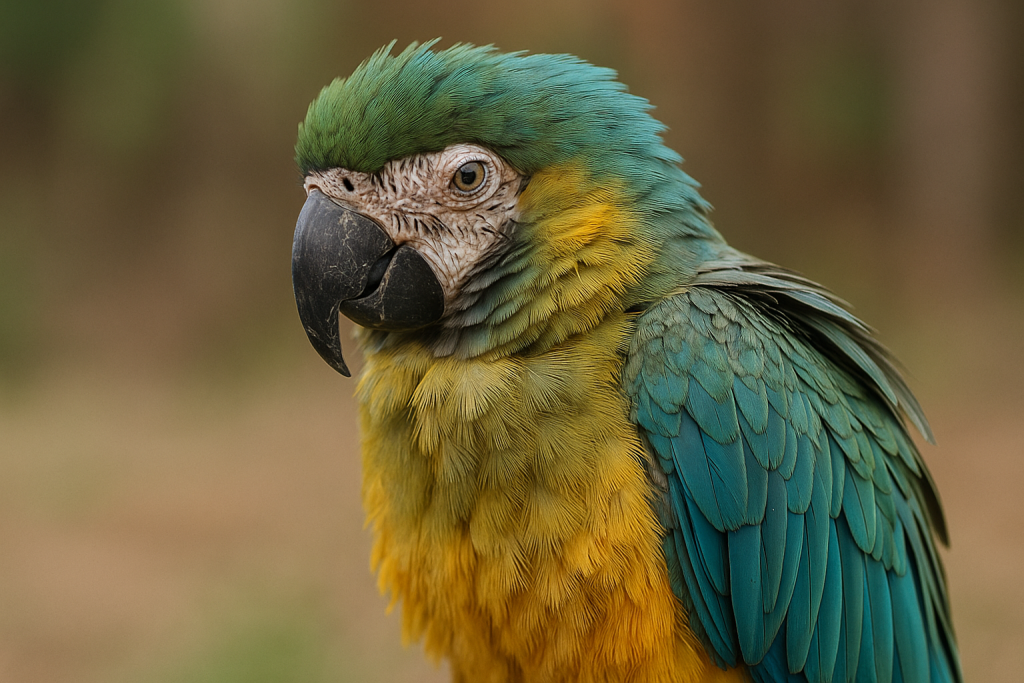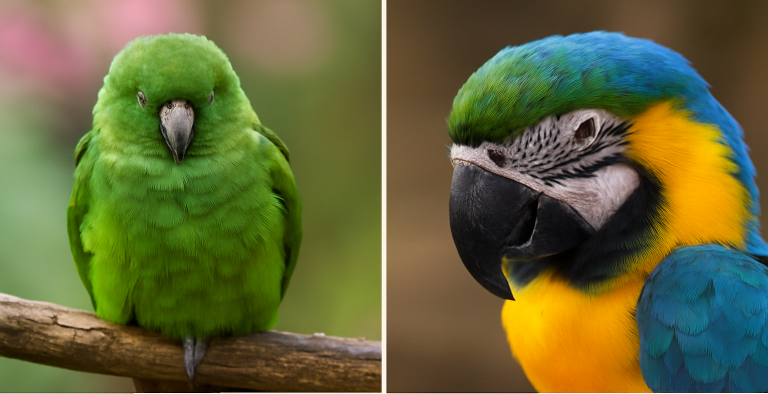Parrots are known for their vibrant personalities and lively behavior, which makes it all the more important to notice when something seems off. Unlike dogs or cats, parrots are prey animals by nature and instinctively hide signs of illness until it becomes severe. As a responsible owner, detecting early symptoms can make a critical difference in your bird’s recovery and well-being.
One of the most noticeable early signs is a sudden change in activity levels. If your normally energetic parrot becomes unusually quiet, withdrawn, or inactive, it could signal that something is wrong. A sick parrot might perch in one place for extended periods, often puffed up with its feathers fluffed to conserve heat.

Changes in droppings are another important indicator. Healthy parrot droppings are consistent in texture and color, but if you begin to notice watery, discolored, or excessively runny stools, this could be a sign of infection, stress, or a dietary issue. It’s essential to monitor the cage floor daily for irregularities.
Appetite and weight fluctuations often go hand in hand with illness. A sick parrot may stop eating altogether or become overly picky with food. Sometimes weight loss happens gradually, so using a small bird scale weekly can help you catch the problem early. Any significant loss of weight should be addressed by a veterinarian.
Behavioral changes are subtle but vital signs. Increased aggression, excessive sleeping, biting, or an uncharacteristic fear response could all be symptoms of discomfort or pain. Similarly, a parrot that suddenly becomes vocal after being quiet, or quiet after being vocal, deserves your attention.
Physical appearance also offers key clues. Look for signs such as a dull or greasy-looking plumage, discharge around the beak, eyes, or nostrils, and changes in breathing (such as open-mouth breathing or tail bobbing while at rest). Parrots may also scratch or pluck excessively when they are unwell or experiencing skin discomfort.

Vocalizations can also provide insight. While each parrot has its own style of chatter, a noticeable decrease or increase in noise—especially screeching, squawking, or distress calls—can indicate stress or pain. If your bird seems quieter or more vocal than usual for a sustained period, it’s worth a closer look.
Other early symptoms include sneezing, labored breathing, limping, head tilting, or holding wings unevenly. None of these should be dismissed as “just a phase.” In particular, symptoms that persist beyond 24–48 hours, or that worsen quickly, require immediate veterinary evaluation.
To keep your parrot healthy, maintain a clean cage, provide a balanced diet, and schedule regular wellness checks with an avian vet. Most importantly, spend time observing your parrot daily. Over time, you’ll become highly attuned to what’s normal—and what isn’t.
Early detection saves lives. When in doubt, it’s always better to seek professional advice than wait for symptoms to escalate. Your bird depends on you to notice what it can’t say out loud.

